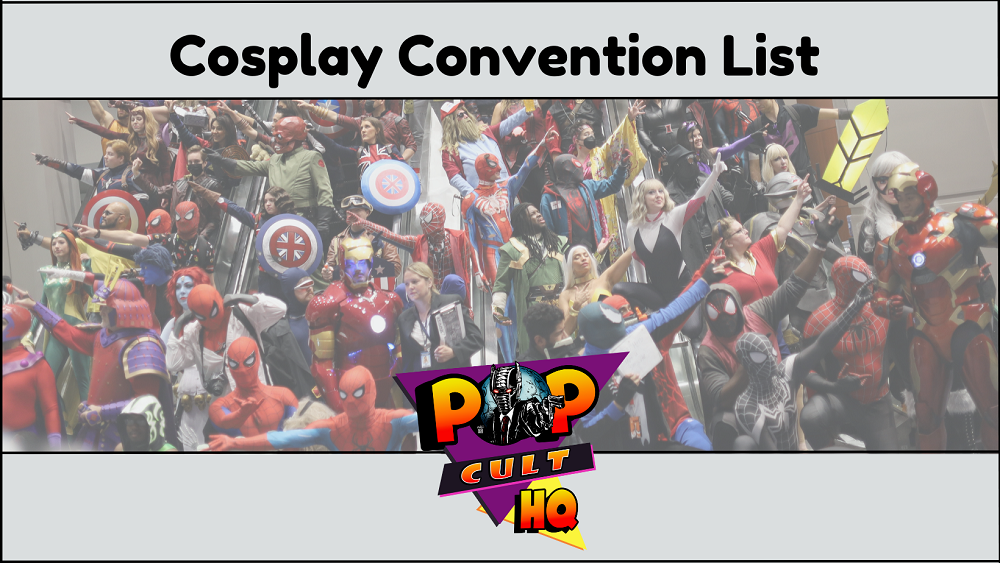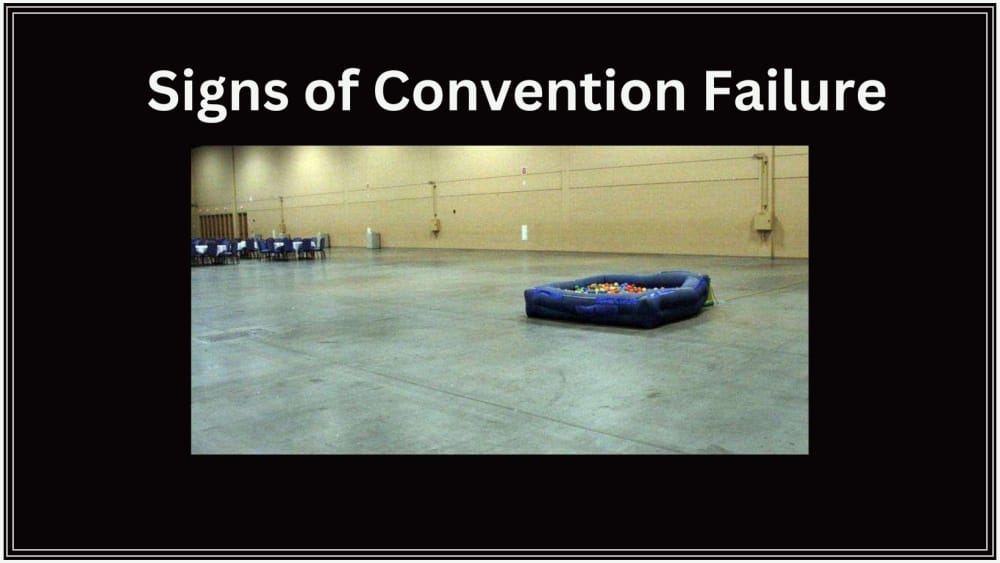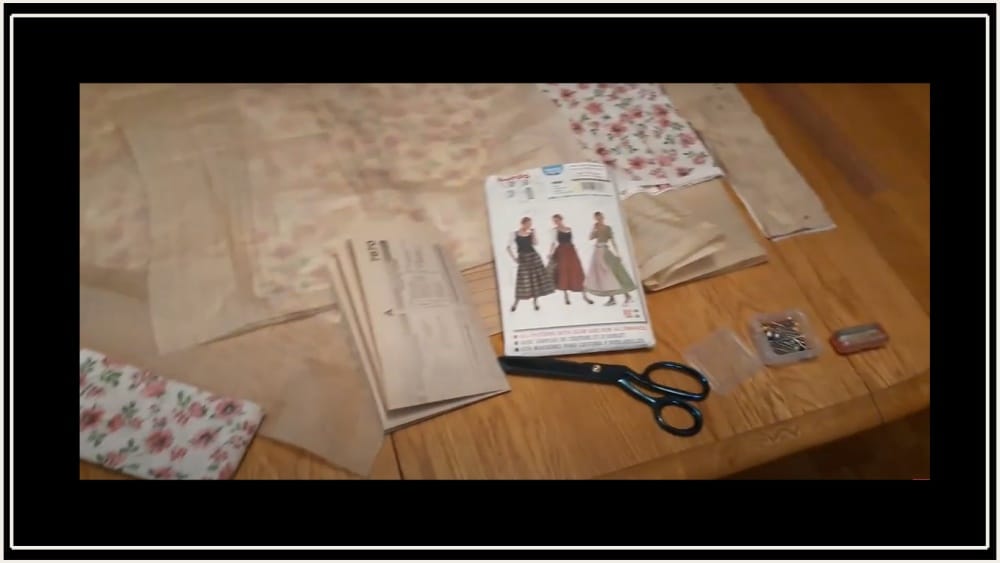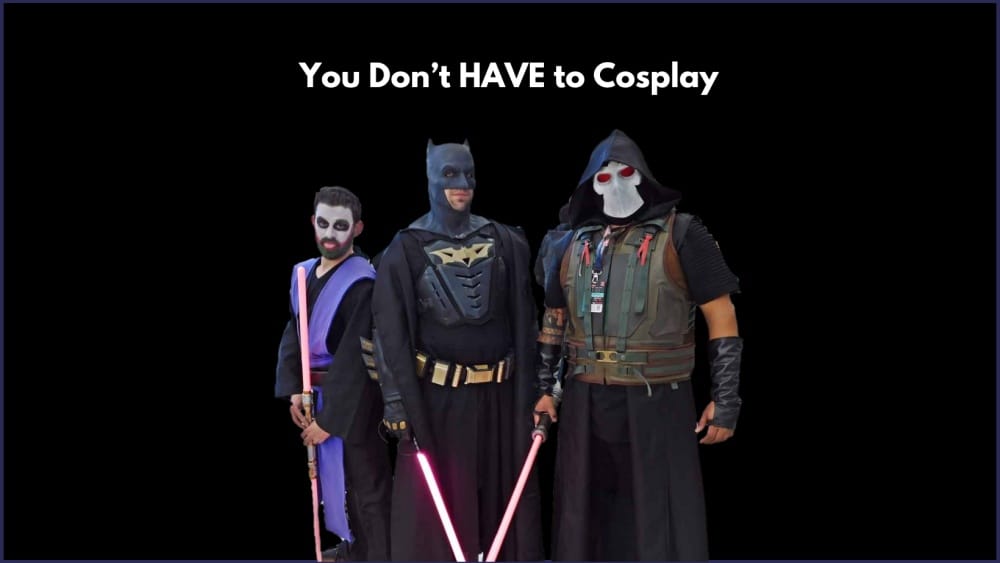PopCultHQ has covered a lot of bad conventions over the years. Not all of them are “con job” conventions, some are just people with high ambitions and dreams that reach further than they should have. Convention failure happens. We are not saying that these are always signs of a bad convention, but when too many of them happen, then you might want to take a second look. This list is built more for vendors, but con attendees can look through these and also get a pretty good idea of what to look for in a failing convention.
Signs that it might be a Bad Convention to Vend at
- If the organizer won’t put anything in writing and always wants to talk over the phone or Skype.
- We see this way too often. Yes, talking in person is frequently more convenient, but it leaves you without a paper trail to follow. Always get everything in writing! If the organizer makes a verbal promise to you, then follow that up with an email, text or message so you can have it in writing.
- If the organizer won’t put their name (or a company name directly affiliated with them) on anything
- If the organizer won’t put their name on anything, then be very leery. Some will create a company to run the event under, which is fine as long as that company can be easily traced to the person behind it all. If they constantly have their associates, assistants, or general underlings sign things and that person is not listed on the company as having authority, then step away.
- If the organizer has never been involved in a convention before
- This is a person running on a dream. They don’t know everything involved in running a convention and the odds are good that they have bitten off more than they can chew.
- If the organizer knows nothing about local tax or licensing regulations
- This is one of the first things anyone should investigate when setting up a new event or business in an area. Do you pay taxes? Immediately after the event? Are there city, county, or state taxes that your vendors will need to know about? Are certain items not allowed to be sold within the city limits?
- Is the organizer new to the area?
- If the organizer is not familiar with the area, then why did they decide it was a good spot for a convention? What do they know about the local fan base or the local spending habits?
- If you see numerous typographical errors in the vendor and/or guest contract
- Sometimes a mistake is just a mistake, but if you see numerous grammatical and typographical errors that could be a sign that they aren’t paying attention to the details
- If there are no contracts for guests or vendors
- No contracts is a very bad sign, unless you don’t mind the idea of working for nothing. No contracts means that the organizer is under no obligations.
- If the convention advertises a ‘special guest’ before the contracts are signed
- As long as the contract is in the final stages, and they have permission from the guest or their agent, this is fine. BUT, too often I have found conventions that advertise guests they are only negotiating with. When the talks fall through, the convention will save face by claiming the guest had to cancel or just quietly face them from the advertisements. Frequently the potential guests won’t make a fuss, because they don’t want to stir the pot and cause potential problems at future conventions.
- The organizer insists on using their contract only for guests and won’t budge.
- Every guest I know of has their own contracts and stipulations regarding their appearances, fees, and obligations. These contracts are to protect them and the convention. Yes, there are always negotiation points that can be hashed out, but when an organizer is “my way or the highway” regarding the contract, then I suggest you take the highway…unless they are one of the big guys with a proven record.
- If the vendor tables cost as much as the ‘big’ conventions
- If you pay the same for a table at a small unknown, unproven convention as you would at a much bigger, well established convention, then you might want to reconsider signing up.
- If a new convention is talking about patrons in the thousands
- It’s a new convention, they can only estimate numbers. Big numbers sound impressive, but they frequently aren’t realistic. Look at the population in the area. If the convention is promising a number that would be 50% of the surrounding area, then they better have a damn good draw and fantastic advertising to even come close to their numbers. If there is another large or established event within a hundred mile radius on the same weekend, you can bet more of the population will be there than at your event.
- If the only sign of advertising you see is via social media or other attendees
- If the organizer is strictly relying on social media, word of mouth and vendors to do their advertising, then don’t expect it to be a good convention. You need to spend money to make money. They need to get to the word out there and get people excited about the event. That isn’t going to happen if Facebook, Instagram and Twitter are their only resources.
- If the organizer doesn’t fulfill promises on a regular basis
- If they can’t answer your questions and never truly get back to you with the answers they promised, you never get the finalized signed contracts, you don’t see the floor plan when promised, etc, then it’s a warning sign that things aren’t running smoothly and you might want to back out (if you can).
- If your contact person has changed several times
- This is a pretty good sign that they aren’t organized, or that the person in charge isn’t a very good boss and changes personnel.
What warning signs do you look for in a convention?
To see what cosplay conventions are coming up
be sure to check out our Cosplay Convention List!





